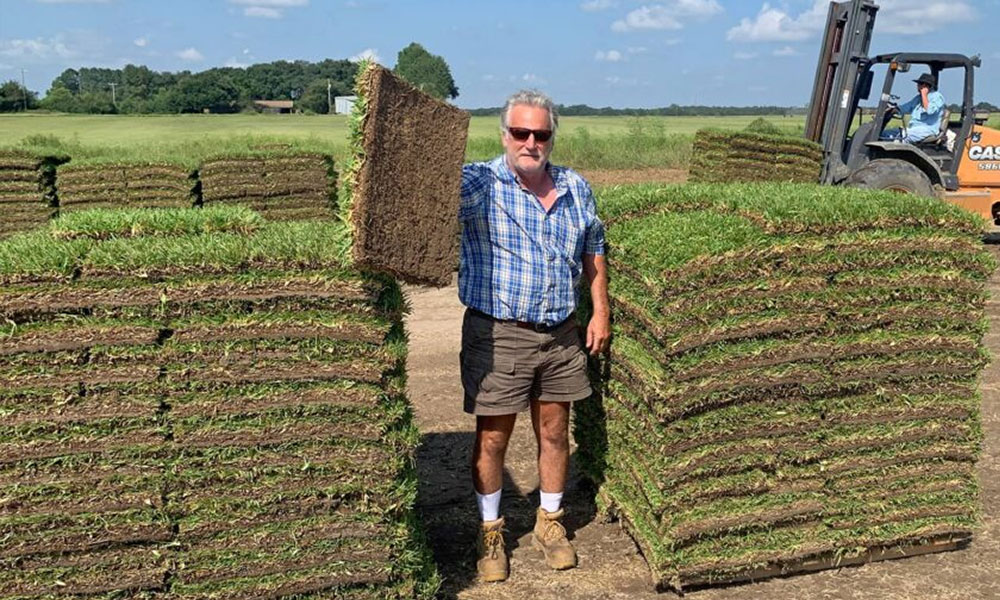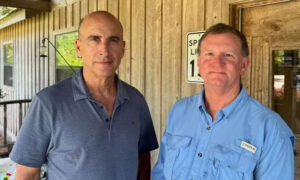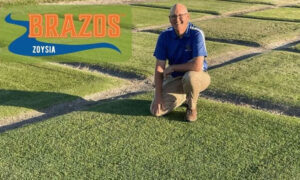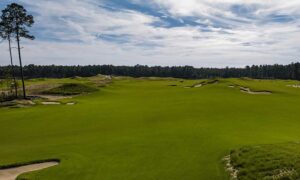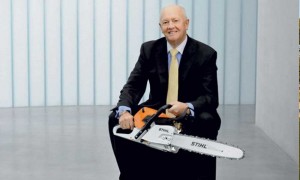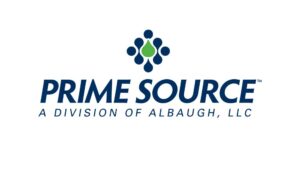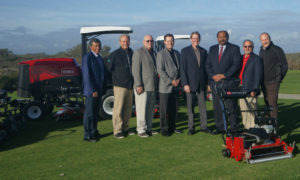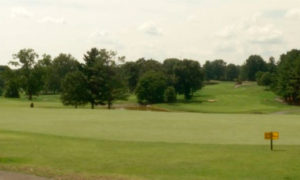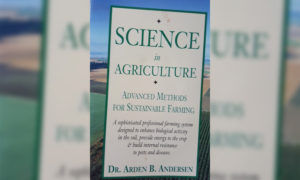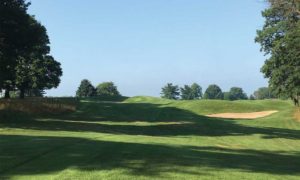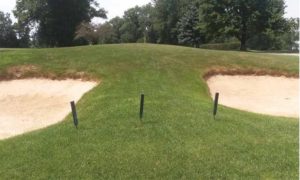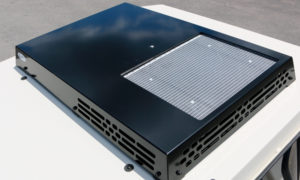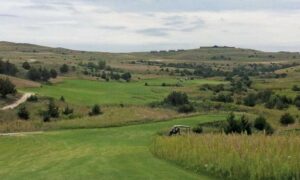Jimmy and Vanessa Riebeling of Riebeling Farms met each other in typing class at Foley High School when they were just teenagers. Vanessa was born in Georgia and Jimmy was born in Arkansas, but both were raised in Alabama after each of their families moved there when they were one year old. The two have been happily married for 43 years and have watched the success of their sod business grow simultaneously.
Jimmy and Vanessa were married in 1979, the very same year that they formed Riebeling Farms Inc. But Jimmy said farming went back many generations before they became involved. Jimmy’s father, Raymond Riebeling returned from serving in the Air Force in the 1950s to farm row crops, hogs and cows with his father, John Riebeling.
“My dad was the hardest working man I’ve ever seen. He worked up until his eighties,” Jimmy said. “There was nothing he couldn’t do. He built his own house and if we needed a barn, we built a barn.”
Vanessa recalled that Jimmy’s parents, Vivian and Raymond, used to tell a story about Jimmy driving a tractor standing up because he was so little that he couldn’t touch the clutch.
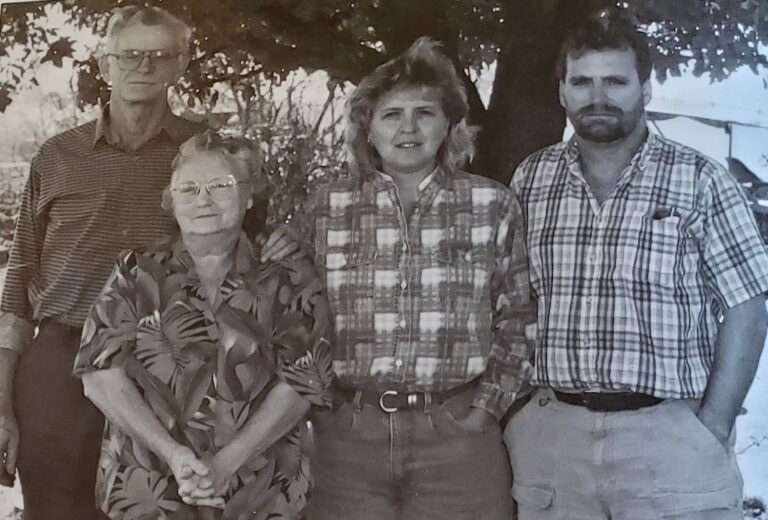
“I started helping my dad since I was big enough to follow him. He grew row crops for a long, long time to make ends meet,” Jimmy said. “Somehow or another, my dad did everything himself and slowly ventured into the sod business in the early 80s and here we are. It was a good move, maybe not an easy move, but we have been blessed.”
Jimmy and Vanessa don’t anticipate his parents ever thought the business would get as large as it is today. Vanessa said they started row cropping so they could make a living and count on a steady income. Jimmy explained it’s also a good thing they eventually expanded into sod to make their business more diversified and by having a product that could survive storms and hurricanes. “If you have a corn or soybean crop out there, it might blow over, but it’s hard to blow sod over. Now you can get excess water in sod, but it’s a lot safer and more long-term than a row crop,” he explained.
Hurricanes
Riebeling Farms has withstood a number of bad storms and hurricanes. Most of which results in a lot of work and loose irrigation rigs. They recall just three weeks after they got married, Hurricane Frederic hit Alabama and left them without electricity for a full week. “It was really, really scary,“ Vanessa said. Two other storms they specifically recall were Hurricane Ivan in 2004 and Hurricane Sally in 2020.
“Sally was so bad because it just sat on top of us for so long. We’re lucky we have irrigation generators which we could rewire to get electricity to our house,” she shared.
Jimmy recalled 9 of his 16 center pivot irrigation rigs flipping over during Hurricane Sally. “It was tough but we overcame it. We cleared the trees out of the way and were just thankful to have a roof on the house. At first, it looked like we’d never get cleaned up, but we always do.”
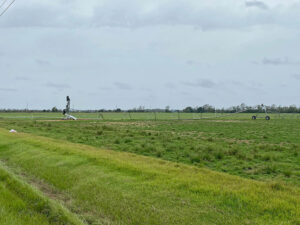
A customer from Florida visited them to assist in cutting and removing tree debris from the farm. Typically, when a storm occurs, farms in their region collaborate and lend equipment to each other. “During Sally, everyone was in the same boat so there wasn’t really a lot we could do for each other. You had to get your equipment and pivots replaced and try to get your insurance companies out.”
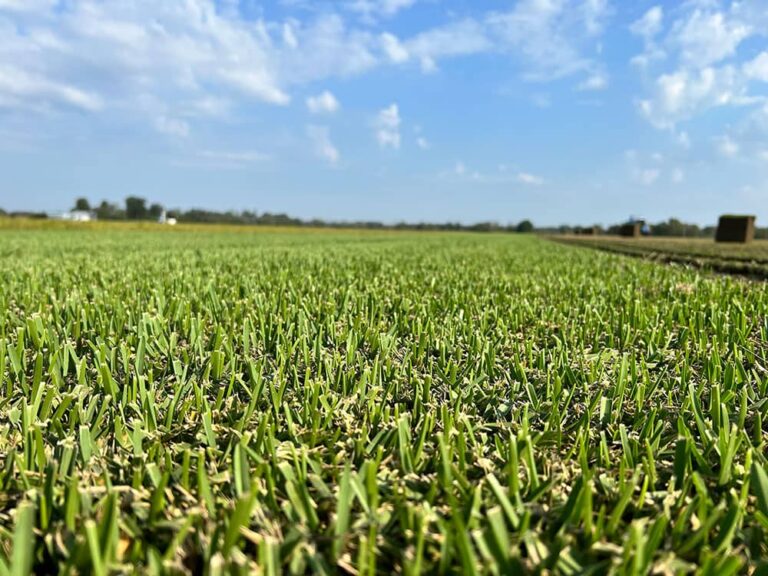
Turfgrass Business
When Riebeling Farms first started growing turfgrass, they oversaw the production of the sod and Jimmy’s uncle Richard Manley would sell and deliver the sod. After a few years, Riebeling Farms acquired its own customers and they’ve been growing, harvesting and delivering sod ever since.
Over the years, they’ve seen a lot of new turfgrass varieties released into the market. “We’ve had a lot of business and there’s a lot more competition too. Machinery has changed, the labor expense has changed and now we have automated sod harvesters and don’t have as much hand labor, but that comes with a price.”
Related: Passing the Torch at Oakland Plantation Turf Farm
Riebeling has been praised for maintaining and producing excellent quality turfgrass. When asked his secret to success, Jimmy said it’s a combination of being blessed, lucky and putting everything into his sod business like he did with their row crops. “My dad always told me to do all you can and the best you can and if you do those two things, there’s a good chance you’re gonna be alright.”
Jimmy said that they face new challenges every day, but labor is an issue for them, particularly the type of labor they need. He also said new equipment prices have gotten outrageous. “But all in all, we really have a lot to be thankful for. We’ve been very successful in my eyes and just have a lot to be thankful for.”
Riebeling grows three of Sod Solutions licensed turfgrass varieties along with a centipede grass.
Riebeling Farms started by growing Palmetto® St. Augustinegrass which he still considers a great St. Augustine. He said it may be a little early to tell if CitraBlue® St. Augustine will be as successful but really likes its features.
“CitraBlue’s color is tremendously different, it requires less mowing and the disease package, which the University of Florida is telling us it’s a lot less, and I see that,” Jimmy said.
Vanessa explained it’s hard to convince customers who are so used to a crop or product that works well to try something new. She said at first it was hard to convince people to try EMPIRE, and now they have customers that it’s all they want and really seem to like it when they put it down. The Riebelings have had EMPIRE in their own front yard for almost 22 years.
“EMPIRE is a really good, tough, low-maintenance zoysiagrass and it’s starting to take over. At first, I didn’t want to grow a zoysia because all the popular fine zoysias were fine ones that you had to cut at half an inch tall and it took a long time. But this is a low-maintenance zoysia that’s no more trouble than a centipede,” Jimmy said.
He explained they still grow row crops because it fits in well with growing turfgrass. They rotate their sod fields with their row crops. “We feel like that’s a big help. It’s hard to sod after sod after sod, year after year after year. It hurts the ground. I don’t know any crop you can do year after year without some type of rotation.”
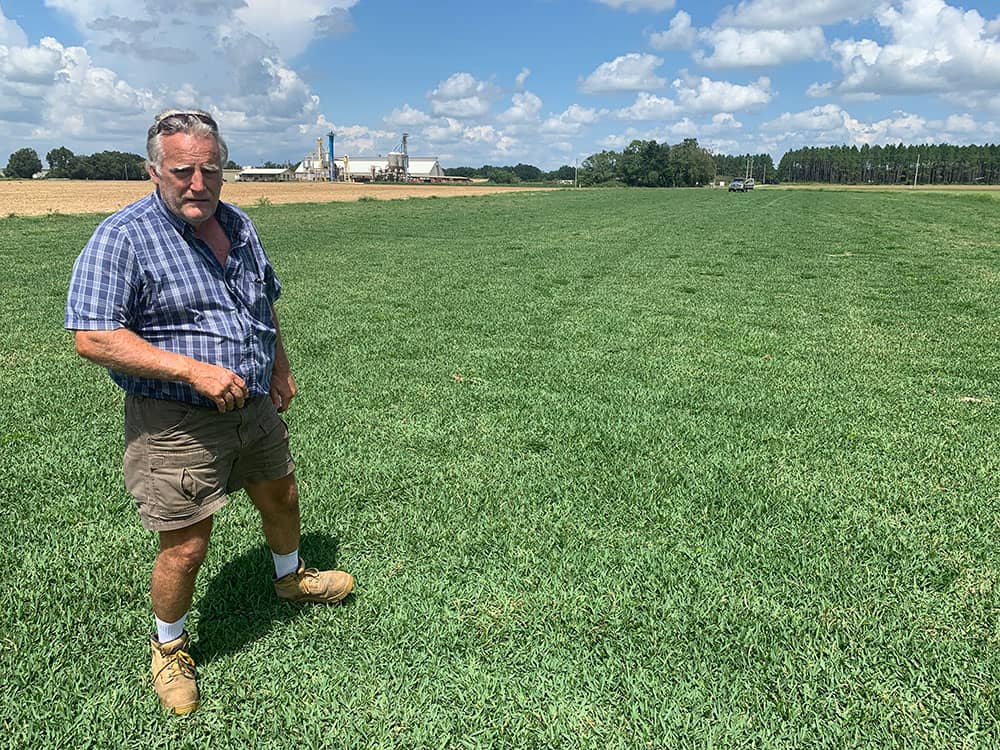
Jimmy’s days at the farm start early and end late. They have about 12-15 people helping on the farm throughout a given year, but Jimmy is the one who stays on top of things. “I can see things coming after 30 years of experience and know what to look for. If someone doesn’t show up and I have to be down earlier, that happens too.”
In 1995, Vanessa resigned from her job to assist her mother-in-law, Vivian, who was looking to reduce her workload in the farm’s office. Initially, for two years, Vanessa performed various manual tasks such as operating mowers, harvesters and sprayers in the fields during the day and completing paperwork at night. However, after a few years, she assumed full responsibility for the farm’s office work, including managing billing and trucking for both sod and row crops. Since the farm did not have computers at that time, Vanessa managed all of these tasks manually.
Approximately five years ago, due to the farm’s expansion, additional office staff were employed, and professional accountants were hired to manage the farm’s taxes. However, over the last year, Vanessa has been unwell, resulting in reduced attendance at the office. Now, she is gradually attempting to resume her duties and assist with the farm’s operations.
Last year, Vanessa was diagnosed with Myelofibrosis, an rare form of bone marrow cancer that disturbs the body’s usual blood cell production. She underwent a stem cell transplant at UAB Hospital during the fall and was instructed to isolate for 100 days afterward. Currently, she is recuperating from the treatment.
Jimmy, who’s 65 years old, said he’s trying to slow down some on the farm so he can spend more time with her. As a result of that decision, he’s not growing peanuts as they have in years past since they take so much work. He’ll be harvesting sod, oats, soybeans and corn this year.
Jimmy and Vanessa have one son, Nathan who works on the farm along with many of their extended family members.
As Jimmy looks forward to hopefully slowing down soon, he said he knows he probably won’t ever be able to quit cold turkey. While a sod farm requires a lot of hard work, money and dedication, they wouldn’t have it any other way.

